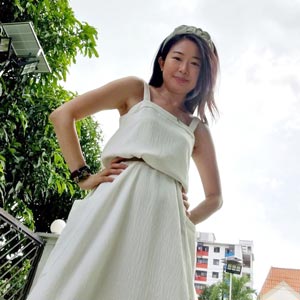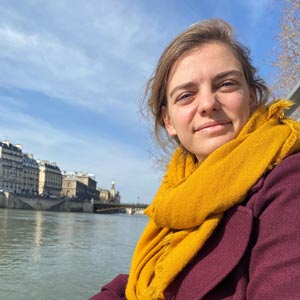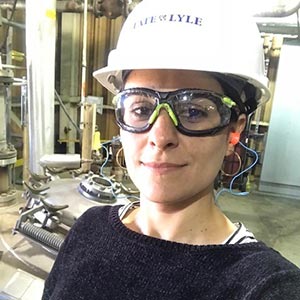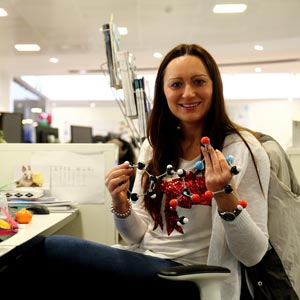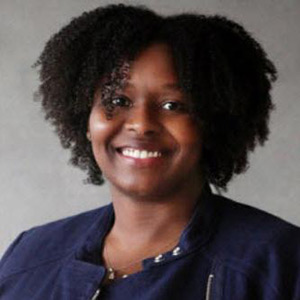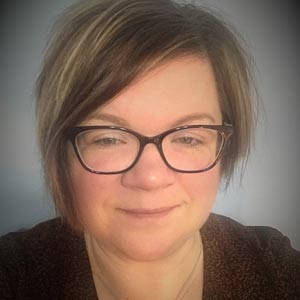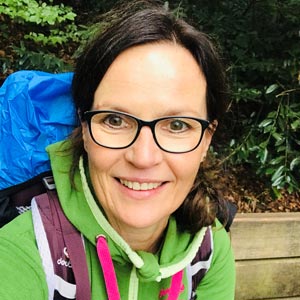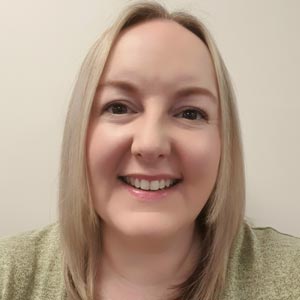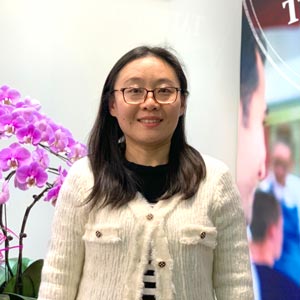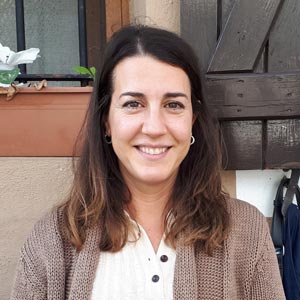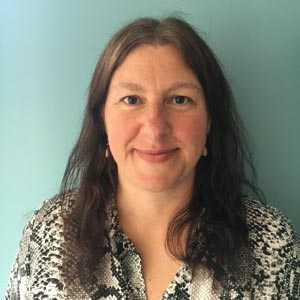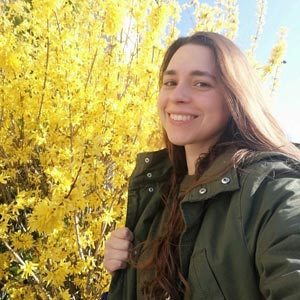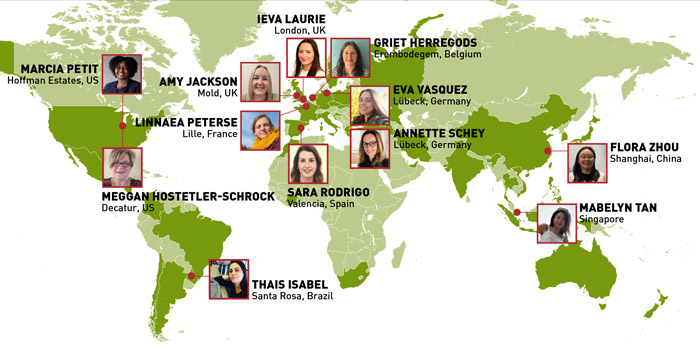“There is no gender when it comes to science”
To celebrate International Day of Women and Girls in Science, we present a snapshot of some of the scientists contributing to our work all around the world. We asked them to share who influenced them as young, aspiring scientists and what advice they have for the next generation.
Mabelyn Tan, Senior Applications Scientist, Dairy (Singapore)
“People who know me will not be surprised to hear that I was a nerdy kid. Growing up as an awkward teen, I felt an affinity with a chemistry teacher who was always teased for being just as awkward. More fascinating to me was the way she lit up whenever she started her lesson. I found myself sharing her passion for molecular bonds and atomic orbitals. Similarly, there was a female lecturer in college, who seemed somewhat out of place as the only woman teaching food science. Yet, she was the one who gave me the most patient guidance, as well as the inspiration to navigate the multidisciplinary approach that food science entails.
“Recently, there have been many exciting advancements in the Singaporean food-tech industry as our government aims to achieve a goal of 30% local food production by 2030. As a dairy scientist, I have been following the work of Lin Fengru, CEO and co-founder of Turtle Tree Labs, a Singaporean biotechnology startup. Though not a scientist herself, it is exciting to follow her journey in leading the development of dairy milk production using stem cell technology.
“I also watch my 2-year-old niece discover gravity through house-building using magnetic tiles. I try to offer her my utmost attention, fully appreciating her creativity and sense of exploration. I believe that girls are just as gifted in science if we simply give ourselves, and each other, the encouragement to bloom. We are more awesome than we think.”
Linnaea Peterse, Technical Support soups, sauces and dressings (Lille, France)
“My grandmother was the perfect example of a woman in science. She was born in 1928 in a small village and went to study chemistry in the big city of Groningen. She had the opportunity to work in Brussels and later in Utrecht at Cifo (former TNO) on amino acids in relation to food and nutrition. Through her study choice and career, she showed me that there is a place for women in science. And as well as being an example, she was also a motivation for me to go into science and technology. She was very proud when I showed her that my highest grades in high school were in chemistry. Later, when she was already in her 80s and I studied food technology, we read through my food chemistry lessons together and she could still tell me all about the Maillard reaction and caramelisation.
“When working in science you will always touch on innovation, creativity and be part of the future. My advice to the next generation is - be curious. I think being curious is an important part on how to approach a career in science.”
Thais Isabel, Microbiology Supervisor (Santa Rosa, Brazil)
“The best influence in my life is my mother. She was a math teacher (now retired) and she was the best teacher I ever met. She always encouraged me to study and when I was a kid, despite going to work every day, she still had time to study with me. She is very brave, smart and hardworking. She is my inspiration, my influence and my pride.
“During my post-doctoral degree I had a professor who was very inspiring, she works in biochemistry and animal toxins, has received several awards and contributed to books and scientific articles. She is very smart, polite and humble. At work, I also have co-workers that I admire - the process engineer Ana Carolina, she is very smart, extremely helpful and humble and the material supervisor Emiliana, she is very hardworking, organized, and the model of a loving mother. It is very inspiring to be able to work with such brilliant women.
“Science is the opportunity to develop knowledge and learn more every day. My advice for girls who are considering going into science is to dive deep into the wonderful world of knowledge, and keep strong, be resilient. Like everything in life, there will always be difficulties, doubts and a lot of struggle, but the gains are certainly greater.”
Ieva Laurie, Principal Nutrition Scientist (London, UK)
“I have a daughter who is 1.5 years now and she’s showing an interest in science (mainly nature), so this is a topic very close to my heart!
“Two key people have influenced me. The first was my secondary school biology teacher. She was the most engaging, quirky and knowledgeable teacher. There were only three pupils (including me) who chose to study biology A-Level but she prepared every single lesson like it was a full class. Also, her teaching was like no other. We did experiments beyond the curriculum which made me love science. Needless to say, my highest exam grade was in biology and I never looked back. I always knew I would study science.
The second was Elsie Widdowson. I did my degree in Nutrition in the UK and Elsie is an English nutritionist and a pioneer of modern nutrition science. Her story is really inspiring. She researched the nutrient content of our daily foods which formed the basis of modern nutrition thinking, in fact, her nutritional food tables are still used today (so what goes on the back of food labels is her legacy). Furthermore, as a result of her scientific advisory activities to the UK government, food fortification (white flour with calcium and iron) became standard practice, helping the population achieve a better diet.
“In my field, I very much admire my boss, Dr Kavita Karnik. Not only is she a well-respected scientist but a feminist, a great leader, and a colleague who is willing to be a critical friend without prejudice. Also, Professor Hannelore Daniel. I only met her recently but she is a force to be reckoned with. She’s written over 700 publications in the field of human nutrition and even after retiring she is still hungry for advancements in science.
“My advice to young girls considering the sciences is you don’t know until you try it. Also, the world of science has evolved for the better - not only in technological advances but also in the need for an inter-disciplinary approach. In the nutrition science field, we work with people and therefore scientific knowledge, passion and empathy are skills that will enable you to discover the unknowns much better than purely academic excellence. Also, as my biology teacher used to say: ‘As long as people continue to eat food, as a nutrition scientist, you will always have a job!’”
Marcia Petit, Technical Category Manager, Food & Beverage Solutions (Hoffman Estates, US)
“I would say my mother was my biggest influence growing up. She was always very supportive of my interest in science and would also express how important education was. She was my number one supporter and told me I could do anything. I have always loved science but when I was a junior in high school, my mother was diagnosed with breast cancer.
“At that moment, I was even more determined to study science and work on a cure for cancer. I looked at all the journal articles I could get my hands on to learn about breast cancer treatment and how to help recovery. I would make special foods for her to help with nausea and try to suggest recipes to help improve her immune system. She is now a 2-times breast cancer survivor. I never did find a job in cancer research but I did stumble into food science and I’m currently inspired by Kim Nelson. She is on the Board of Directors for Tate & Lyle.
“My advice to young girls is don’t be intimidated by being the first or being the only one. Do the work and no one will be able to deny that you belong. A teacher once told me that science isn’t about how much you know but whether you know where to find the answers. That taught me success in science is about determination as much as it is about knowledge. Science is about experimentation and research not about perfection. Most scientific advancements are the result of failures so don’t be afraid to fail. It is part of the process.”
Meggan Hostetler-Schrock, Director, Applications and Technical Service, Industrial Ingredients (Decatur, US)
“My parents and a number of teachers were big influences. My parents were always supportive and I was never made to feel that being a girl meant I couldn’t enjoy science. I had a number of very encouraging teachers – my high school psychology teacher tried to convince me to go into psychology, which I did enjoy but I also knew I really enjoyed science and math. I took all the science and math classes my high school offered. As a high school junior, I received a flyer from Purdue University about their Women in Engineering program and an invite to visit campus. At the time, I didn’t know what it meant to be an ‘engineer’ but my physics teacher encouraged me to attend and the rest…is history. I was hooked. I was privileged to attend a university that was already paving the way for increasing the number of women in engineering.
“If you like solving problems, asking questions, doing research, and enjoy science and math, anyone could and should consider science or engineering. The world continues to grow and evolve so the opportunities within the science world are literally endless. Seek out women scientists and engineers to talk to about their career paths. Ask lots of questions. Get an idea of what different career paths may look like. Remember that studying a science-based field is a great launch pad to nearly any career, so seek out experiences to find the direction of most interest to you. Be open to new opportunities and definitely seek out internships and co-op opportunities in college.”
Annette Schey, Senior Technical Service Manager (Lübeck, Germany)
“I had a very encouraging chemistry and biology teacher in year 9 and 10 who supported me. This encouraged me to choose biology and chemistry during high school and I sat my A-Levels in these subjects. During that time, these were my favourites and I eventually chose to study food science/technology at the University in Munich, which is well known for food technology.
“I recently read an article about Katalin Kariko, one of the leaders in mRNA science. Her passion and how she has not given up during difficult times is something I really admire. She now works at biontech and is one of the leaders in the development of the mRNA vaccines but she worked for a long time without any attention or recognition.
“My advice to the next generation is do whatever makes you happy. Even if you’re not good at maths (which I wasn’t and still became an engineer) you can still be a very good scientist.”
Amy Jackson, Scientist, Food & Beverage Solutions (Mold, UK)
“My science teachers were very influential at school, especially both of my chemistry teachers (one of whom was a woman), who supported and encouraged me when I chose to study chemistry A Level.
“However, my greatest female role model has been, and still is my mother, who has always encouraged and supported me. Growing up, she was running a household, studying and also working. Sometimes I would join her at her work during evening shifts or during the school holidays, so she showed me from a young age the importance of being independent and that women can have a career. It also helped me to gain some valuable work skills from a very young age. She even sacrificed her Saturdays to drive me to and from long shifts working on a food production line when I was about 16 or 17 years old.
“I would encourage any young girl to gain experience in order to help decide what’s right for her. If you don’t know what you want to do yet, that’s fine, don’t panic - many skills are transferable and it’s also important to gain life skills and independence. Work hard and respect each job you do, as you never know where it may take you on your career path.”
Flora Zhou, Senior Technical Service Specialist, Dairy (Shanghai, China)
“I was influenced most by my teacher’s daughter, who was brought up in the countryside in China but achieved two PHD degrees from Harvard University. She was very hard-working and efficient and has made great achievements in life science.
“I also admire all the women scientists I work with in my field here at Tate & Lyle. They are hardworking, decent and reliable. They are considerate daughters of parents, warm mothers of kids, and essential to our company. I can learn a lot from each of them.
“My advice to young girls is that you are careful and dexterous so just go deep into science and try what you want to try. Science is not only for boys. There is no gender when it comes to science.”
Sara Rodrigo, Sales Account Manager (Valencia, Spain)
“One of my greatest inspirations is Marie Curie; the first woman to win a Nobel prize and she received two, in different fields, physics and chemistry, which is unique. She was very determined to pursue her interest in science despite many hurdles.
“Another great inspiration is Maria Iraburu. She was my first teacher at the University of Navarra and she not only introduced us to biochemistry but was in charge of onboarding newcomers. This combination of technical acquaintance and strong soft skills was truly an example to me. I was very happy to see that she recently became the rector at University of Navarra – the first woman to do so. Her intention is to make women’s talents visible and, in future, ensure this type of achievement is no longer an exception.
“I would remind girls that in life, it is better to be brave than perfect. They should give things a try. Listen more to themselves and less to other people’s expectations which might make them feel pushed to do something ‘more traditional, suitable or convenient’. They should follow their personal goals. There’s no real hurdle to achieving great findings or developments so I’d invite them to pursue their dreams because they are full of potential and talent that they might not be aware of yet.”
Griet Herregods, Technical Support Manager (Erembodegem, Belgium)
“Growing up, my father always encouraged me to question and explore the world around us - why is the sky blue, how can milk burn but not water? This was fundamental to my interest in science. At the same time my mother, who was always told by her parents that higher education was not for girls, decided to take financial courses and got into a management role in the financial world. This inspired me to follow my own interests, and it made me believe I could achieve anything I wanted to, regardless of whether I was a man or a woman.
“I really admire Emma Stevenson. She is Deputy Dean of Newcastle University Population Health Sciences Institute and Professor of Sport and Exercise Science. I had the honor of collaborating with her in the field of exercise nutrition and have followed her activities ever since. She started out as a female researcher in the predominantly male field of sports science and has developed into an authority in the field. I admire her approach to research, where she focuses on collaboration, sharing and building a vast network to achieve more together, rather than secrecy and competing to discover something first.
“My advice to the next generation of women scientists is to always follow your passion. It’s much easier to do something which seems difficult but that you find highly interesting, than to do something seemingly easy but you feel indifferent about.”
Eva Vasquez, Scientist, Beverages (Lübeck, Germany)
“I was influenced by Dr. Elena Stashenko. She was my teacher and advisor while working on my undergraduate research project in analytical chemistry back in Colombia. She created and manages a cutting-edge research center. I was able to see with my own eyes a real example of a strong woman - a leader that had a successful career in science and this definitely inspired me.
“There are many women in the field of food science that I have had the opportunity to meet, learn from and admire during my academic career but I would like to mention in particular Dr. Monica Giusti, professor from Department of Food Science and Technology of The Ohio State University.
“It’s important for any young girl starting their career in science, technology, engineering and mathematics (STEM) to believe in themselves and be confident in their abilities. You can learn anything you set your mind to. There will be always challenging moments but persistence and passion about science will be the key elements to overcome them. Also, inspire yourself by looking at the life of famous women scientist or, if possible, find a mentor to guide you. Finally, be curious and feel passionate about science and anything you do in life.”
Learn more about our Equity, Diversity and Inclusion commitments here
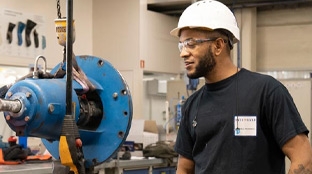
Equity, Diversity & Inclusion
We're committed to all of our employees being seen, heard and valued, and our teams reflecting the local communities we serve. Learn more about our approach and commitments to Equity, Diversity & Inclusion globally.
